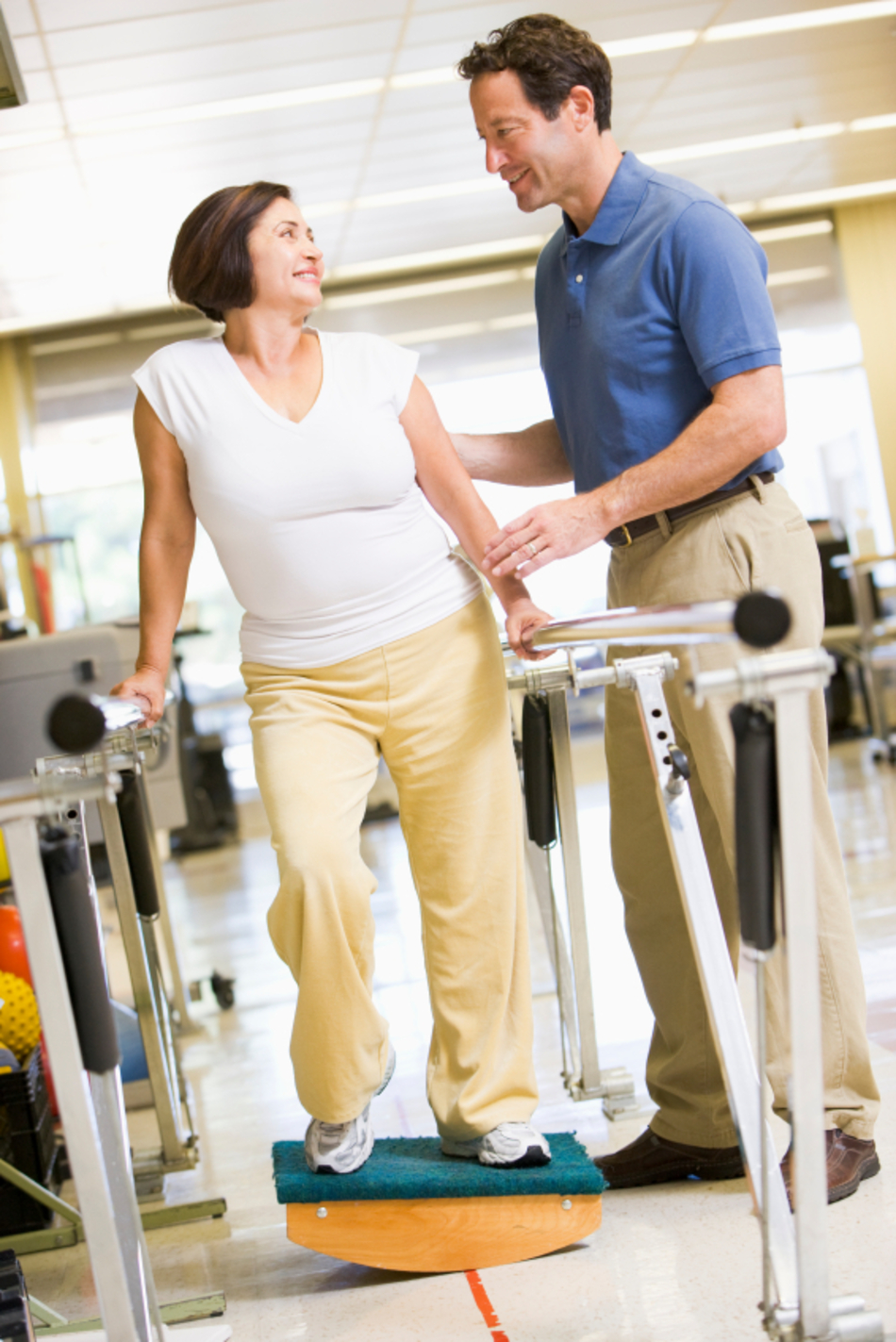Episode Transcript
Announcer: Medical news and research from University of Utah physicians and specialists you can use for a happier and healthier life. You're listening to The Scope.
Amy: From stretcher to skiing, for a podcast focusing on some physical challenge patients may encounter when recovering from a stroke. This is a topic I am all too familiar with after suffering a stroke on New Years Eve of 2012. So, the first question I have for you, Stacy, is what advice do you give stroke patients on setting realistic physical therapy goals?
Stroke Physical Therapy
Stacey: I think it's really important to individualize the care for each patient and really tap into what motivates them in getting back to their new lives.
Amy: How important is it for the physical therapist and stroke patient to work together?
Stacey: I truly believe it's the only way to have a successful therapy outcome and a successful relationship with your patient. I think that making goals together and individualizing their care and getting them back up on their feet is what makes the rehab process really important and very fun and unique as a therapist.
Amy: What are realistic goals for someone who has had a stroke?
Stacey: That's a huge question, but I think it depends on the person's age. It depends on what they enjoyed doing beforehand. If they want to lie on the couch, we can definitely get you back to lying on the couch. If you want to ski, we can get you back to skiing. So, it's really important to make sure that you're taking your patient's needs and wants and desires into your plan of care and adjusting those as needed.
Individualized Stroke Rehabilitation
Amy: I want to return to a previous question. When it comes to physical therapy after someone has had a stroke, I'm thinking one shoe does not fit all.
Stacey: Correct.
Amy: So how do you individualize a patient's plan of care?
Stacey: Again, I think it's vital to their participation. I use family members if communication is a barrier at first. I say, "What makes Amy, Amy? What makes her tick?" And trying to pull those pieces into their rehab is really important. And it's a team approach. We have an occupational therapist. We have a speech therapist that work with our people who are recovering from a stroke. We work together to make sure you're able to get out into the community, because that's a huge, scary barrier for someone who has suffered a stroke. It's something that's very important to us as a team to get everybody on the same page, especially with the patient's goals being the center of the focus.
Stroke Rehab Setbacks
Amy: Many stroke patients have uncovered either major or minor setbacks. And what words of wisdom do you give them on coping with that setback?
Stacey: I think it's very individualized, but I think, it sounds clichÈ, but keep going. Just keep swimming. Just keep doing. Don't stop moving. Motion is life. Find what motivates you. It's going to look different than it did before quite possibly, but trying to find some peace and some enjoyment in what your new activity is or what the new adaptation is. Or really just trying to cope with what the difference is that you're now facing after you've recovered from your stroke or recovering from your stroke.
Amy: Speaking of noticing a huge difference, I recently this winter went skiing at Alta.
Stacey: That's amazing.
Amy: And that was quite challenging, but I was amazed at how naturally it came back to me. I still, favored my right side, but it was amazing how naturally it came back.
Stroke Recovery
Stacey: I think that's why we do our job, is to hear stories like that. In in-patient rehab, we don't get to see you get out on the slopes, but we get to give you a little push and hope that one day, that's the story that we're hearing is, "I'm getting back to skiing, I'm getting back to biking, I'm getting back to walking, I'm getting back to..." whatever it is that, again, makes Amy, Amy. That's the true joy of being a physical therapist.
Amy: And one final question, what advice do you give stroke patients on their first day in the rehab unit.
Stacey: It's going to be a long day. It's going to get easier every day from here on out. You're going to keep getting stronger. You're going to keep seeing improvements but you're going to do this, and we're here with you to help you do the best that you can.
Amy: And so, in ICU and acute care both, I was worried if I would be able to go for hikes, swim laps, or ride my bike again. All that changed when I met you, Stacey, in the rehab unit. I will be forever grateful for your patience, encouragement, and saying, "You can do this." But most importantly, I am thankful to you for your friendship.
Stacey: Thank you, Amy. You've been a true gem to work with, and I'm honored to watch you go from stretcher to skiing. It's amazing.
Announcer: TheScopeRadio.com is University of Utah Health Sciences Radio. If you like what you heard, be sure to get our latest content by following us on Facebook. Just click on the Facebook icon at TheScopeRadio.com.
